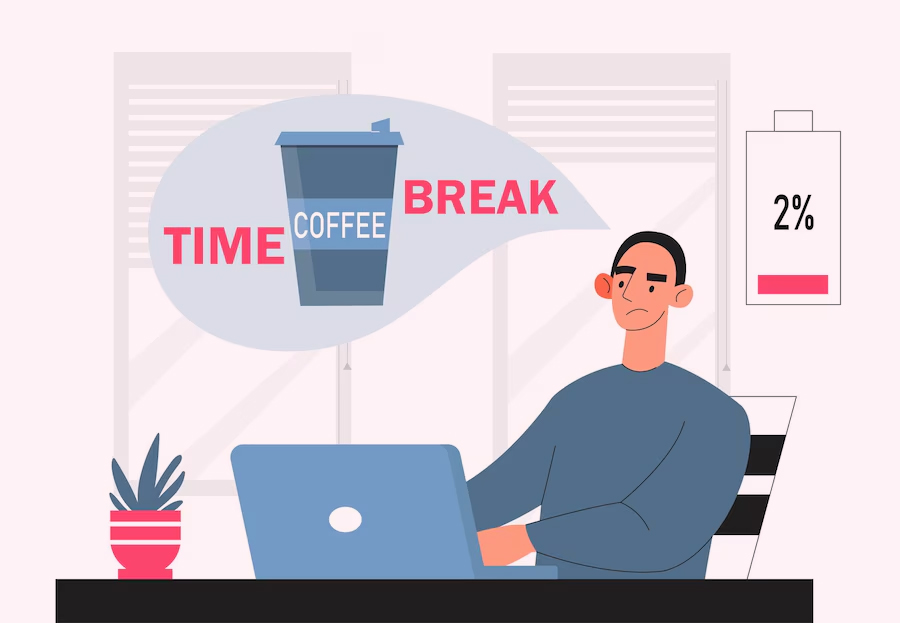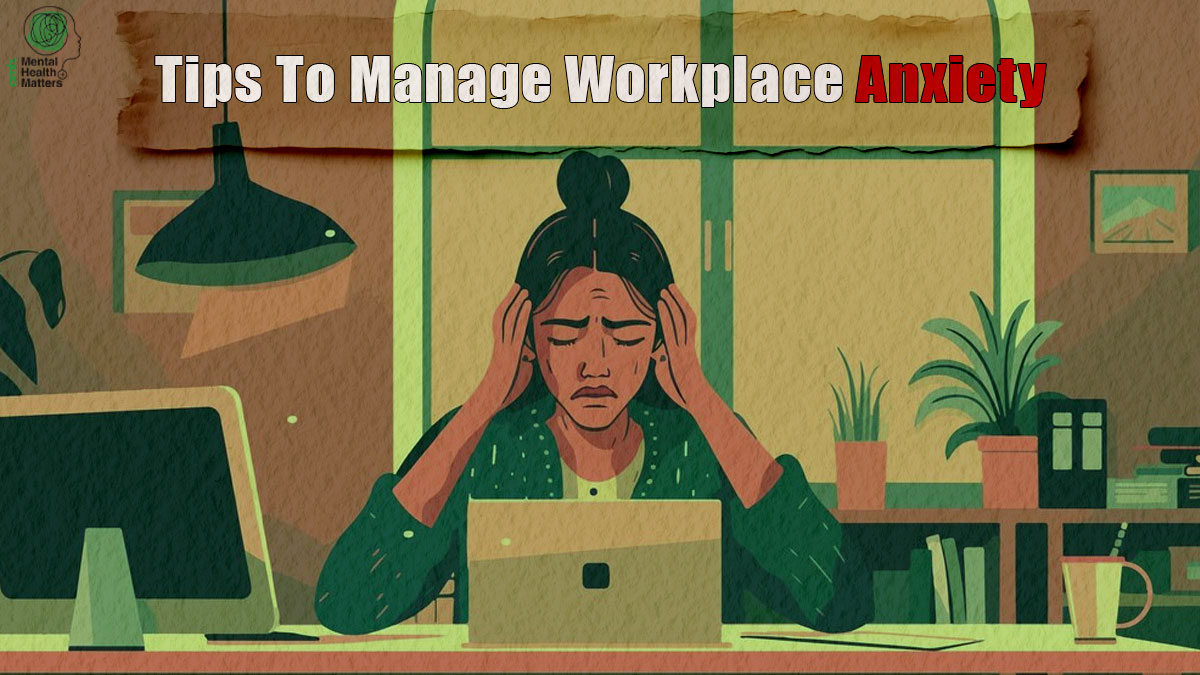In today’s fast-paced work culture, feeling anxious at work has become more common than we realise. From tight deadlines to performance pressures, it’s easy to get overwhelmed. But as we mark World Mental Health Day on October 10th, with this year’s theme focusing on “Mental Health at Work”, it’s the perfect moment to reflect on how we can better manage workplace anxiety. Understanding how to navigate stress, take control of mental well-being, and implement expert strategies can make a significant difference in both your productivity and peace of mind.
Experts from The George Institute for Global Health India say:
- Workplace stress is a growing concern, driven by factors, such as:
- Long working hours
- Strict deadlines
- High-performance expectations
- Having too much or too little work
- Limited participation and control in the workplace
- Monotonous or unpleasant tasks
- Role ambiguity or conflict
- Lack of recognition
- Inequity
- Poor interpersonal relationships
- Inadequate working conditions
- Ineffective leadership and communication
- Conflicting demands from home and work
Not only this, stress can stem from negative experiences like sexual harassment or bullying in the workplace. While stress is often linked to mental health issues like depression and anxiety, its impact extends further, contributing to physical conditions, such as hypertension and diabetes. Despite a clear need to address mental health challenges, it remains an overlooked issue across various sectors in our country.
Also Read: World Mental Health Day 2024: Expert Explains The Hidden Costs Of Ignoring Mental Health In The Workplace
How to Manage Workplace Anxiety
Managing workplace anxiety is essential for maintaining both mental health and productivity. According to Mental Health America’s 2021 *Mind the Workplace* report, nearly 83% of respondents felt emotionally exhausted from their jobs, and 85%, or almost 9 in 10 workers reported that job-related stress affected their mental health. Here are tips shared by Archana Singhal, Counsellor and Family Therapist, Founder, Mindwell Counsel, to help you navigate anxiety at work effectively:
Recognise Triggers

“One of the first steps in managing workplace anxiety is recognising what triggers it. Triggers can vary from person to person, ranging from tight deadlines to difficult conversations with colleagues or the pressure to meet performance expectations,” said Singhal. Identifying these triggers is essential because once you know what causes your anxiety, you can begin to address it.
You can keep a journal to track situations that make you feel anxious at work. This can help you recognise patterns and develop strategies to manage or avoid those situations. For example, if tight deadlines cause you stress, you can plan ahead and break tasks into smaller, more manageable steps.
Establish a Routine
Having a structured routine can make a significant difference in managing workplace anxiety. When your workday is chaotic or unorganised, it’s easy to feel overwhelmed. A good routine involves setting priorities, breaking tasks into manageable chunks, and allowing time for breaks throughout the day.
This allows you to focus on one thing at a time, rather than juggling multiple tasks simultaneously, which often leads to mental exhaustion. When you know what’s coming next in your day, your mind feels calmer and more focused.
Social Connection

You should not underestimate the power of social support in managing stress and anxiety at the workplace. According to the Anxiety and Depression Association of America (ADAA), Feeling supported and knowing that someone understands your condition can be reassuring, potentially easing any anxiety you may have about experiencing a panic attack at work.
Engaging in a conversation with someone you trust allows you to share your feelings, which often makes you feel lighter, added Singhal. Sharing your thoughts and feelings can foster a sense of community, making workplace stress less isolating.
Regular Exercise
Physical activity isn’t just beneficial for your body, it’s also a great way to alleviate stress and improve mental well-being. Whether going for a walk, practicing yoga, or doing a quick workout during your lunch break, regular exercise can help ease the mental strain caused by workplace anxiety.
Exercise triggers the release of endorphins, which are natural mood boosters that reduce feelings of anxiety. Incorporating yoga or meditation into your routine can further help calm your mind, providing you with the clarity and energy to handle work challenges more effectively.
Also Read: World Mental Health Day 2024: Addressing The Impact Of Remote Work On Employee Well-Being
Take Short breaks

When work feels overwhelming, taking short breaks can offer much-needed relief. Stepping away from your desk, even for a few minutes, helps you reset mentally and recharge your energy. Short breaks not only reduce feelings of pressure but also improve focus and productivity once you return to work.
During these breaks, it’s helpful to engage in activities that are calming and unrelated to work, such as taking a walk, listening to music, or simply breathing deeply. These small moments of relaxation can make a big difference in managing stress throughout the workday.
Meditation and Mindfulness
“Incorporating mindfulness and meditation into your daily routine can be transformative in managing workplace anxiety. Meditation helps calm your mind, while mindfulness keeps you focused on the present moment rather than worrying about future tasks or deadlines,” said Singhal.
Setting aside even a few minutes each day to practice mindfulness can reduce anxiety and improve your ability to manage stress. You can do this by practicing deep breathing exercises, guided meditation, or focusing on your surroundings during a short walk. Over time, you’ll notice a positive shift in how you react to stressful situations at work.
Also Read: Crushed By Careers: The Silent Mental Health Struggles at Work
Professional Support

While these strategies can be effective, there are times when workplace anxiety becomes overwhelming and difficult to manage on your own. If your anxiety starts affecting your daily life, seeking professional support is crucial. Many organisations offer Employee Assistance Programs (EAPs) that provide counselling services to help employees manage stress and mental health concerns.
Talking to a mental health professional can provide you with personalised coping strategies and tools to handle anxiety. They can help you gain a deeper understanding of your anxiety and guide you toward effective solutions tailored to your needs.
[Disclaimer: This article contains information provided by an expert and is for informational purposes only. Hence, we advise you to consult your own professional if you are dealing with any health issues to avoid complications.]
